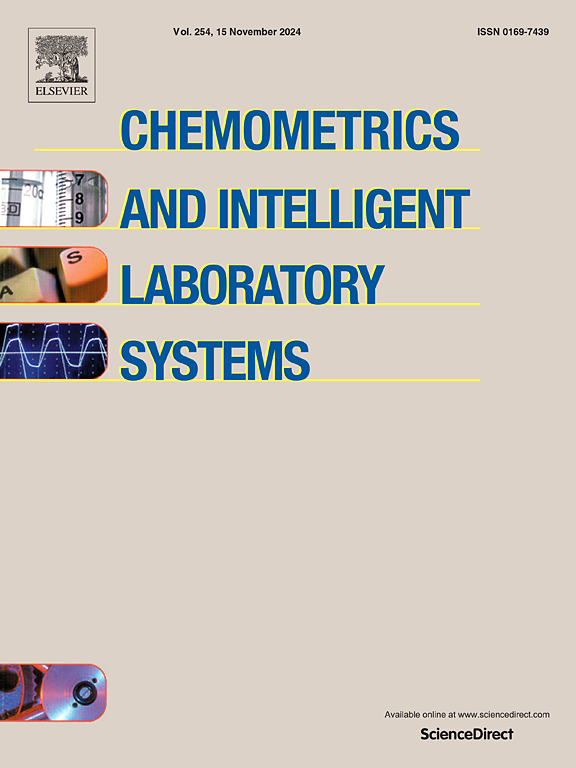Adaptive soft-sensor update by Latest Sample Targeting Frustratingly Easy Domain Adaptation
IF 3.7
2区 化学
Q2 AUTOMATION & CONTROL SYSTEMS
Chemometrics and Intelligent Laboratory Systems
Pub Date : 2024-10-23
DOI:10.1016/j.chemolab.2024.105246
引用次数: 0
Abstract
Soft-sensors are widely used in manufacturing processes to estimate key process variables; however, their performance may deteriorate when process characteristics change. Although Just-In-Time (JIT) modeling techniques have been proposed for adaptive soft-sensor design, they do not always adapt to abrupt changes. Transfer learning (TL) has been suggested as a means to address this issue, with Frustratingly Easy Domain Adaptation (FEDA) being used for soft-sensor design. This study proposes a new TL method called Latest Sample Targeting-FEDA (LST-FEDA) for JIT-based soft-sensor, which can handle both sudden and gradual changes in process characteristics. LST-FEDA updates soft-sensors using a fixed number of latest samples whenever a new sample is obtained. The effectiveness of the proposed method was demonstrated using simulation data from a vinyl acetate monomer (VAM) process and actual operation data from a fluorine-based monomer (FM) process. LST-FEDA accurately estimated objective variables during sudden malfunctions and scheduled maintenance, contributing to efficient and safe process operation.
以最新样本为目标的自适应软传感器更新,轻松实现令人沮丧的领域自适应
软传感器被广泛应用于制造工艺中,用于估算关键工艺变量;然而,当工艺特征发生变化时,其性能可能会下降。虽然已经提出了用于自适应软传感器设计的准时 (JIT) 建模技术,但它们并不总能适应突然的变化。转移学习(TL)被认为是解决这一问题的一种方法,其中令人沮丧的易域适应(FEDA)被用于软传感器设计。本研究为基于 JIT 的软传感器提出了一种新的 TL 方法,称为最新样本定位-FEDA(LST-FEDA),它既能处理流程特征的突变,也能处理流程特征的渐变。每当获得新样本时,LST-FEDA 都会使用固定数量的最新样本更新软传感器。利用醋酸乙烯酯单体(VAM)工艺的模拟数据和氟基单体(FM)工艺的实际操作数据,证明了所提方法的有效性。LST-FEDA 准确估计了突发故障和计划维护期间的客观变量,有助于实现高效、安全的工艺操作。
本文章由计算机程序翻译,如有差异,请以英文原文为准。
求助全文
约1分钟内获得全文
求助全文
来源期刊
CiteScore
7.50
自引率
7.70%
发文量
169
审稿时长
3.4 months
期刊介绍:
Chemometrics and Intelligent Laboratory Systems publishes original research papers, short communications, reviews, tutorials and Original Software Publications reporting on development of novel statistical, mathematical, or computer techniques in Chemistry and related disciplines.
Chemometrics is the chemical discipline that uses mathematical and statistical methods to design or select optimal procedures and experiments, and to provide maximum chemical information by analysing chemical data.
The journal deals with the following topics:
1) Development of new statistical, mathematical and chemometrical methods for Chemistry and related fields (Environmental Chemistry, Biochemistry, Toxicology, System Biology, -Omics, etc.)
2) Novel applications of chemometrics to all branches of Chemistry and related fields (typical domains of interest are: process data analysis, experimental design, data mining, signal processing, supervised modelling, decision making, robust statistics, mixture analysis, multivariate calibration etc.) Routine applications of established chemometrical techniques will not be considered.
3) Development of new software that provides novel tools or truly advances the use of chemometrical methods.
4) Well characterized data sets to test performance for the new methods and software.
The journal complies with International Committee of Medical Journal Editors'' Uniform requirements for manuscripts.

 求助内容:
求助内容: 应助结果提醒方式:
应助结果提醒方式:


